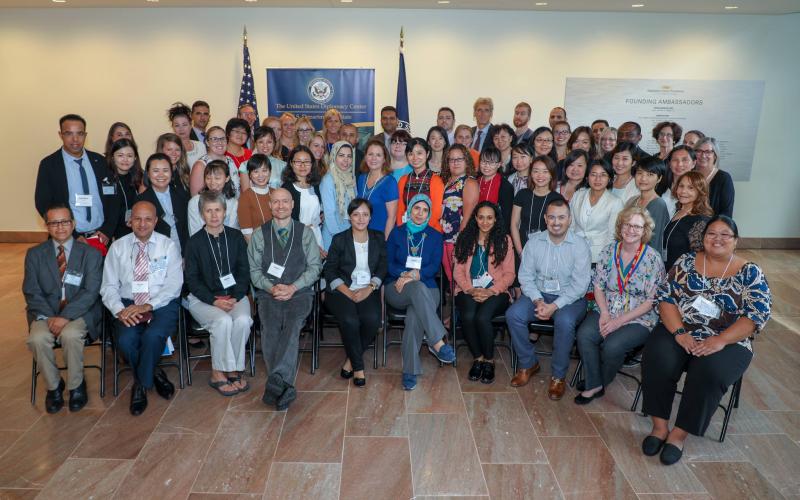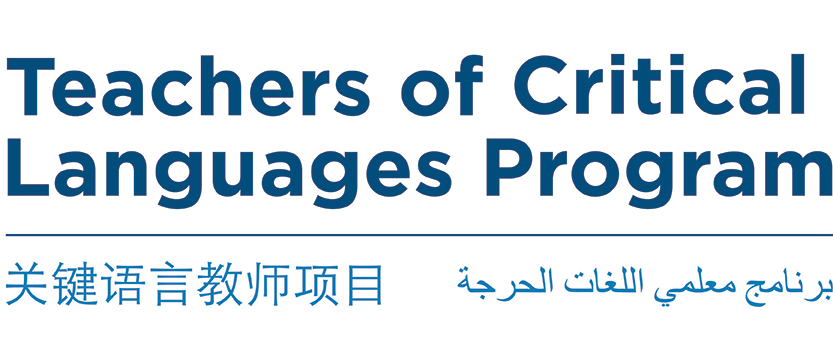
The U.S. Diplomacy Center offers educators immersive programs that explore the goals and practice of diplomacy, teach diplomatic skills, build global competence, and illustrate how the critical work of American diplomats affects people’s everyday lives and promotes mutual understanding.
During the Orientation, TCLP educators participated in a project based learning (PBL) environment by acting as key players in an international water crisis negotiation. They learned how to conduct a diplomatic simulation while teaching their subject areas and how to provide a collaborative learning experience, in which students step into the role of a real-life diplomat.
The participants considered this new initiative to be both a fun and valuable opportunity for the 29 exchange teachers, and for their mentors to put themselves in their students’ shoes. Additionally, participants indicated that “it was a real eye opener to see how hard it is to reach agreements with contending parties.”
While the visit to the center and museum were inspiring to attend in-person, simulations can be done in any classroom using the tools provided by the U.S. Diplomacy Center Education Program to increase student understanding of diplomacy and inspire students to be involved in foreign affairs. Facilitator support videos and all the materials needed to conduct eight available simulations are available online at the Diplomacy Center's website. To experience what it’s like to be a diplomat, topics include freshwater, migration, wildlife trafficking, a nuclear crisis, HIV/AIDS, counterfeit trade, sustaining fisheries, and peace building.
After the simulation, the participants debriefed their experience and took part in a closing discussion with Anthony Koliha, Director, Office of Global Educational Programs at the Bureau of Educational and Cultural Affairs of the U.S. Department of State. The location of the closing event at the Diplomacy Center, surrounded by pictures of American diplomats and a piece of the Berlin wall signed by international diplomats, reinforced the goals of TCLP and the role of the exchange teachers as citizen diplomats engaging in daily interactions with students, parents, and community members across the United States.
